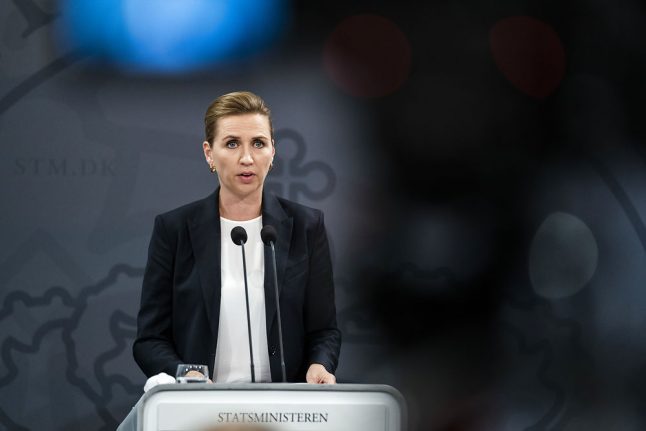Prime Minister Mette Frederiksen announced the updated measures at a briefing on Friday.
Bars and restaurants across the country will need to close at 10 pm — a measure until now reserved for the Copenhagen area.
Additionally, standing guests in all bars and restaurants in the country will be required to wear face masks.
Gatherings of more than 50 people will be banned as of Saturday, compared to the current limit of 100 people. Some exceptions for events at which participants are mostly sitting – such as spectators at football matches – continue to apply.
Public and private employers have also been asked to allow staff to work from home wherever possible. Members of the public have been asked to avoid public transport at busy times if they are able to do so.
“We are still in the middle of a global pandemic,” Frederiksen said.
The measures will remain in place until at least October 4th.
Frederiksen stressed that while the number of cases was going up, the situation was still better than in March.
“What we're doing now is about avoiding ending up there, so that we avoid a closing down of large parts of society,” she said.
Denmark has reported 22,291 cases of Covid-19 and 635 deaths since the outset of the pandemic.
The country’s State Serum Institute reported 454 new cases of the virus in its daily update on Friday. That is one of the highest daily figures ever registered in Denmark, although testing is far more widespread now than during the original wave in the spring.
58 people are hospitalised with Covid-19 nationwide as of Friday, a decrease of 2 from the previous day. The highest concurrent number of coronavirus hospitalisations in the spring was 535.
Three people are currently in ICU care with the virus in Denmark. This number reached 146 earlier in the year.
READ ALSO: Denmark advises against travel to Switzerland, three other countries



 Please whitelist us to continue reading.
Please whitelist us to continue reading.
Member comments